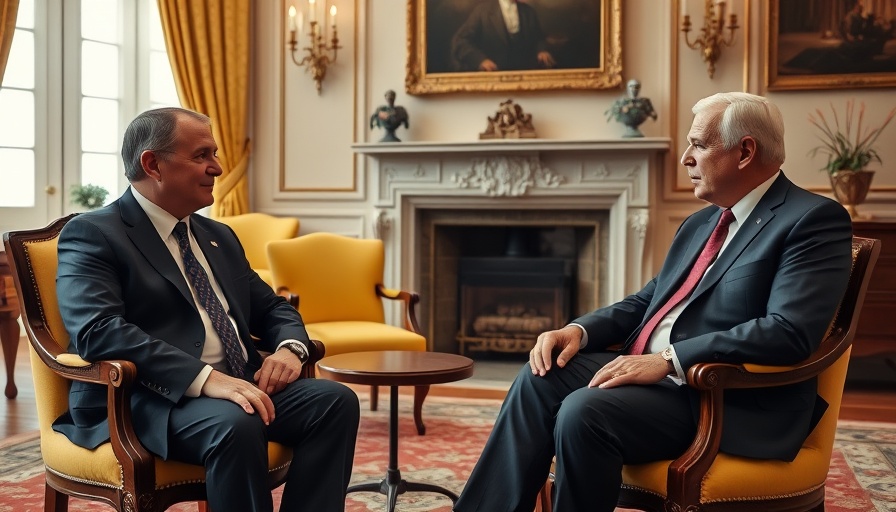
How America’s Leadership Affects Transatlantic Relations
The first hundred days of President Trump's second term have led to a significant reevaluation among America's European allies. As the historical ties forged during crises such as World War II begin to feel fragile, the reactions from Europe highlight both the complexities and the challenges of modern geopolitics.
The Controversial Rhetoric
President Trump’s comments regarding Europe have garnered sharp responses from across the Atlantic. His declaration that the European Union was created to 'rip off' the United States resonates poorly with many Europeans who see the EU as a symbol of collective security and partnership. This rhetoric exacerbates the feelings of estrangement and undermines decades of diplomatic relations that hinge on mutual respect and understanding.
The Economic Fallout: Tariffs Hit Home
For European business owners like Vincent Dampt, a Burgundy winemaker, the unpredictable tariffs on French wines have created a precarious situation. The initial threat of a 200% tariff sent shockwaves through the industry, and the fluctuating decisions on tariff percentages only add to the uncertainty. This instability hurts not only business owners but also afflicts consumers who ultimately bear the cost through higher prices.
NATO: A Shaken Alliance
The North Atlantic Treaty Organization (NATO), a bedrock alliance ensuring mutual defense among Western nations since 1949, is also experiencing a period of doubt. Trump's insistence that European nations increase their defense spending has struck a nerve; while many agree with the necessity of higher defense budgets, the tone and implications of his remarks have raised questions about the U.S.'s commitment to its allies. Camille Grand from the European Council on Foreign Relations notes that while increased military investment is critical, the perception of the U.S. abandoning its allies is a growing concern.
Historical Context: A Fragile Legacy
The Normandy landings during World War II symbolize a key moment where American and European forces united against tyranny. This history provides a stark contrast to today’s climate, where words and actions from U.S. leadership can lead allies to question whether that legacy will endure. The strength of that historical partnership is under threat, and the stakes are higher than ever.
Future Implications: What's Next for U.S.-Europe Relations?
The behavior of the current administration may force a reckoning among European nations. Some may choose to respond by forging stronger ties independently or with alternative allies, while others might look to the U.S. to reaffirm its role as a trusted partner. It raises the question: how far are European countries willing to go in response to U.S. policies that undermine their shared values?
Conclusion: A Call for Rebuilding Trust
As the world watches the aftermath of Trump's first 100 days, the vital signs of transatlantic relationships need nurturing. Collaborative policies, consistent rhetoric, and mutual understanding will be crucial in restoring trust that has begun to fade. Those interested in the evolution of international relationships must stay informed and engaged with current events, as changes can impact daily life not just in America but across the globe.
If you care about the ties that bind nations together, it is essential to stay updated on how changes in leadership can reshape our world. Follow the news for insights that matter and engage in discussions about the future of international relations.
 Add Element
Add Element  Add Row
Add Row 



Write A Comment